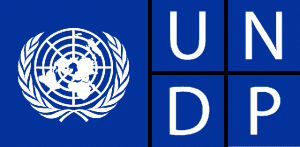By Sami Zaptia.
Tripoli, 3 November 2021:
The kick-off meeting of Phase 2 of the European Union-funded “Recovery, Stability and Socio-Economic Development in Libya – Baladiyati” programme was held today, at the El Andalous hotel in Tripoli, the UNDP reported.
Conceived as an opportunity for institutional representatives to meet and discuss objectives and plans towards strengthened cooperation in the South of Libya, the event was attended by Libyan Deputy President of the Presidential Council, Al Koni, the Libyan Deputy Prime Minister, Mohammed Abu Janah, the Minister of Local Governance, Badr Eldin Sadig A-Tumi, two representatives of the Minister of Planning, the Ambassador of the European Union to Libya, José Antonio Sabadell, the Ambassador of Italy to Libya, Giuseppe Buccino, the representatives of the three implementing agencies, namely the Italian Agency for Development Cooperation (AICS) – Regional Office, the United Nations Development Programme (UNDP), the United Nations International Children’s Emergency Fund (UNICEF), and the mayors of the 15 municipalities in the South of Libya identified for programme interventions.
Minister Al-Tumi, who chaired the event, welcomed participants and said: “The Ministry of Local Governance has been working closely with colleagues from municipal authorities in the South to identify major challenges and tackle them jointly, and we will continue to do so. Today’s event is further proof of our commitment to support all populations in Libya and provide them with the assistance that is needed, in cooperation with the European Union, the Italian Embassy and Baladiyati’s executing agencies.”
Building upon the successful results achieved by the three implementing agencies throughout Baladiyati Phase 1, which allowed for over 300 priority interventions in the sectors of health, education and water and sanitation (WASH) in 27 Libyan municipalities, Baladiyati Phase 2 relies on additional 26.2 million EUR of EU funding to foster basic services, sustainable economic development, and social cohesion in 15 municipalities in the South of Libya.
The Ambassador of the European Union to Libya, José Antonio Sabadell, said: “Functioning local administrations and efficient public services are key elements of Libya’s stabilization, peace and prosperity. At the heart of the EU’s Baladiyati programme stands thus a partnership with Libyan municipalities to improve basic services, create livelihood opportunities and strengthen social cohesion. Baladiyati will put a special emphasis on municipalities in Libya’s South, responding to the hardship and challenges many of the Southern municipalities have to face.”
The Italian Ambassador in Libya, Giuseppe Buccino, renewed Italy’s commitment to strengthen cooperation toward stability and improved welfare in the South of Libya, in line with the priorities of the Government of National Unity.
Buccino said: “I am glad to be attending this event today, together with the Libyan Deputy President of the Presidential Council, the Minister of Local Governance, the representatives of the Minister of Planning, the EU Ambassador and the Mayors of the municipalities where Baladiyati’s Phase 2 will concentrate work. Today we are joining forces to improve livelihoods and public service delivery in the Southern region of the country and address the most pressing needs of the communities.
Supporting the southern region and its people is a priority for the Italian Government and the Italian Cooperation. We are committed in promoting peace and stability in Fezzan, supporting the reconciliation efforts of Libyan Government and financing concrete intervention in different fields such as health, renewable energy and water.”
The AICS Head of Regional Office, Andrea Senatori, said: “Supporting local governance and strengthening the delivery of basic services to the Libyan population have been the main objectives of the Italian Cooperation in Libya. Since October 2018, Phase 1 of the Baladiyati programme has carried out over 300 priority interventions, contributing substantially to improved access to basic services and enhanced resilience for the most vulnerable communities in Libya. In Phase 2, AICS will continue boost dialogue and coordination with the Libyan Central and Local Authorities, the European Union and colleagues from UNDP and UNICEF to assess and deliver the needed support in the South of Libya.”
“UNDP is keen to increase its support in the southern region of Libya as a component of its resilience and peace building programme implemented in partnership with the Ministry of Local Government. In the second phase, the project will support local economic recovery, renewable energy and social cohesion as the building blocks for peace and sustainable development in the south of Libya. I look forward to continuing our partnership with Libyan institutions, the European Union, the Italian Cooperation and UNICEF, for Libyans to generate peace dividends and be strong drivers of recovery efforts for a more peaceful, united, and democratic country,” said the UNDP Resident Representative, Marc-André Franche.”
The Acting UNICEF Special Representative to Libya, Khaldoun Shakkour, expressed UNICEF’s continued commitment to leaving no one behind, noting that Phase 1 of the Programme had done much to open up the Southern region to comprehensive international support, stating that: “UNICEF welcomes this opportunity to deepen our engagement towards sustainable programming in Southern Libya in a way that meets our collective responsibility to assist communities to build back better.”
After the opening session, the European Union’s implementing partners AICS, UNDP and UNICEF took the floor to present Baladiyati’s Phase 2 scope and overall goals and engaged with participants in an open discussion on the shared vision toward quality basic services, community dialogue and livelihood opportunities for all in the South of the country.






